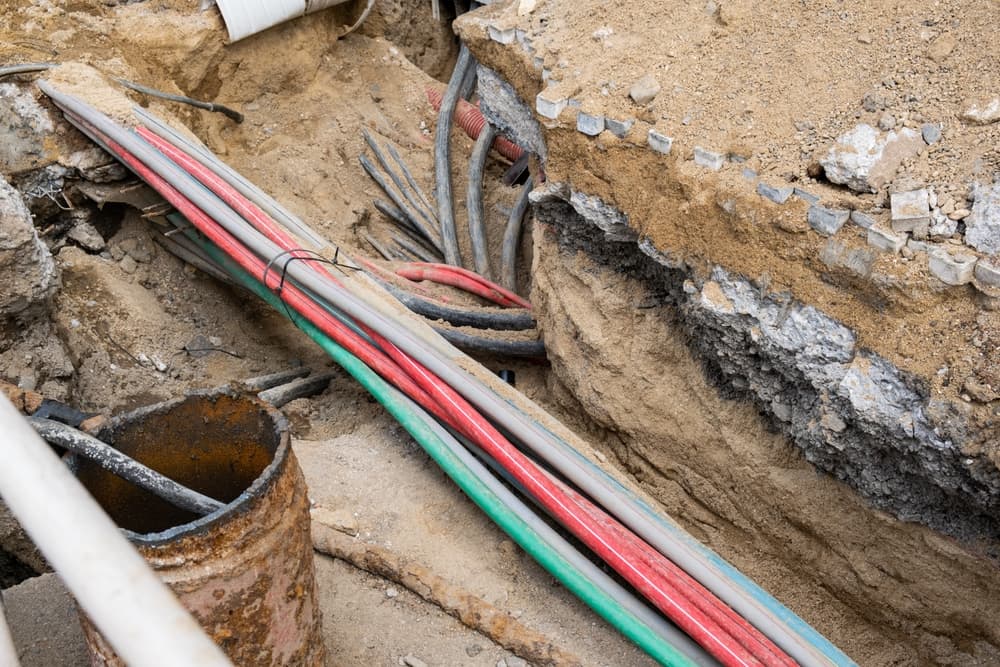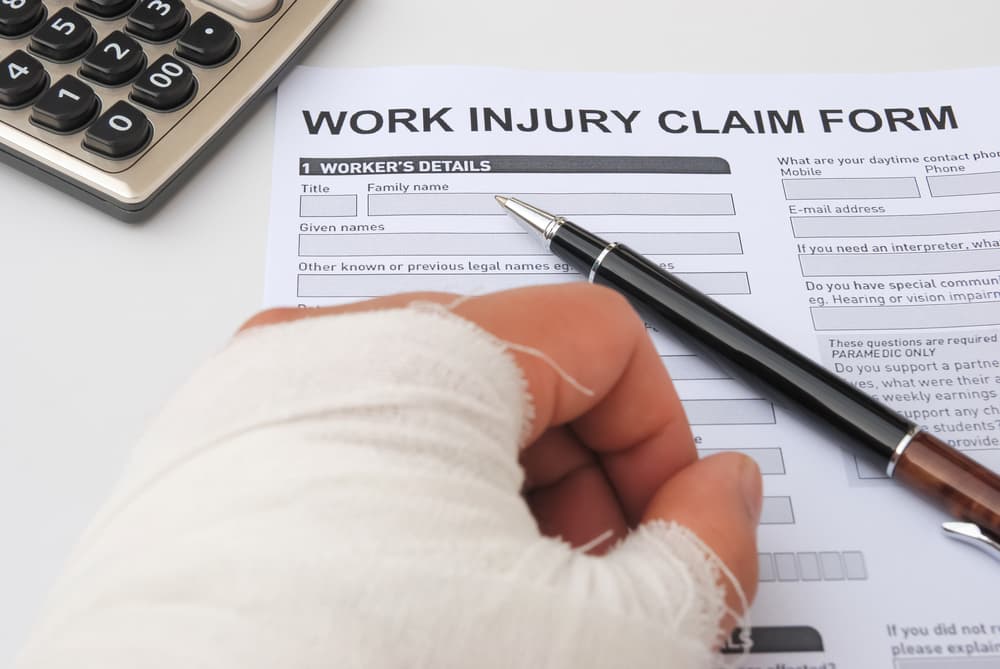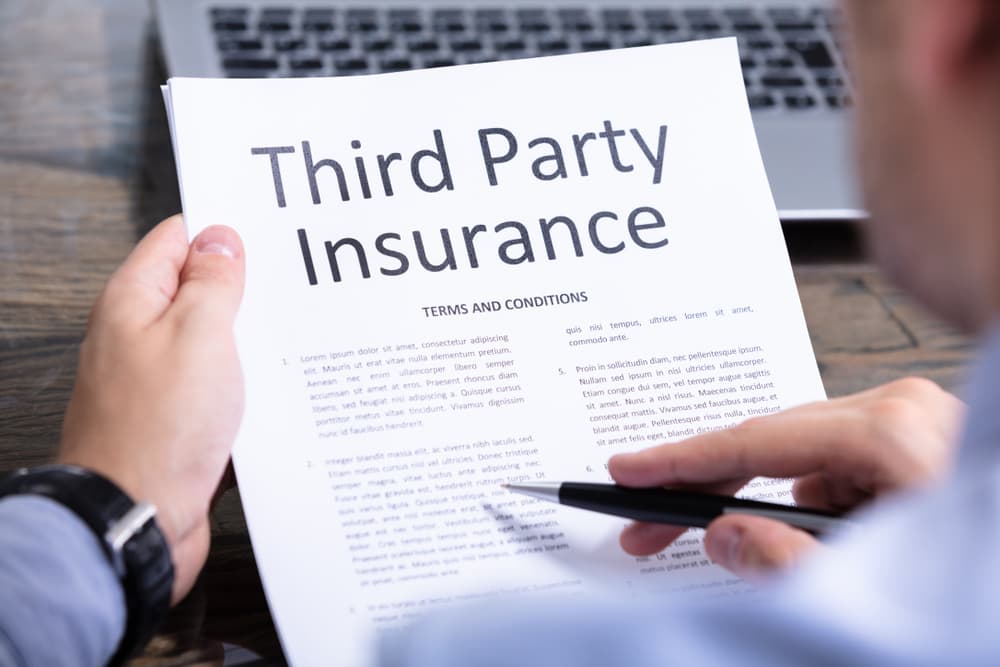Electrical hazards on construction sites are, unfortunately, all too common. When a worker is involved in an electrical accident, they may suffer burns, electrocution, and other serious medical complications. If you suffered any of these injuries while working on a construction site, you must immediately consult an experienced construction accident lawyer.
Your attorney can first review the circumstances of the occurrence with you and determine your legal options. Those options may include filing a workers’ compensation claim with your employer’s insurance company and/or filing a third-party claim against a negligent individual or entity (other than your employer) for various damages.
How do Electrical Hazards Cause Accidents on Construction Sites?
Electrical hazards pose significant risks on construction sites, often leading to accidents that can result in injuries or fatalities.
- One common electrical hazard on construction sites is exposed wiring or electrical components. When these elements are not properly insulated or protected, they can pose a risk of electric shock to workers who come into contact with them. Additionally, damaged wiring or equipment increases the likelihood of electrical malfunctions, such as short circuits or power surges, which can result in fires or explosions.
- Another potential hazard is overhead power lines. Construction equipment or materials that come into contact with overhead power lines can cause electrocution or electrical burns to workers. Even working near power lines can be dangerous, as electricity can arc or jump from the lines to nearby objects or individuals.
- Electric shock is one of the most common types of accidents, occurring when a worker comes into direct contact with an energized electrical source. The severity of electric shock can range from minor tingling sensations to cardiac arrest and death, depending on the voltage and duration of exposure.
- Electrical fires are another significant risk, especially when wiring or equipment becomes overloaded or damaged. Sparks or heat from electrical faults can ignite flammable materials nearby, leading to fires quickly spreading throughout the construction site. In addition to causing property damage, electrical fires can trap workers and hinder evacuation efforts, increasing the likelihood of injuries or fatalities.
- Arc flash incidents are also a concern on construction sites, particularly when working on or near electrical panels or equipment. An arc flash is a sudden release of energy due to a fault in an electrical system, resulting in an explosion of intense heat, light, and pressure.
Employers must prioritize safety measures such as proper training, hazard awareness, and personal protective equipment (PPE) to lessen the risks of electrical hazards on construction sites. Regular inspections of electrical systems and equipment can also help identify and address potential hazards before accidents occur, ensuring a safer work environment.
Common Injuries that Result from Electrical Hazards on Construction Sites
Electrical hazards on construction sites can lead to various injuries, from minor shocks to life-threatening conditions.

- One of the most frequent injuries resulting from electrical hazards is electric shock. When workers come into direct contact with an energized electrical source, they may experience a shock, which can range in severity depending on factors like voltage and duration of exposure. Minor shocks may cause tingling sensations or muscle contractions, while more severe shocks can lead to cardiac arrest or death.
- Electrical burns are another common injury on construction sites. When electricity passes through the body, it can generate heat, causing burns to the skin and underlying tissues. The severity of electrical burns varies depending on factors such as voltage, current, and duration of exposure. Superficial burns may only affect the outer layer of the skin, while deep burns can cause extensive tissue damage and may require surgical intervention.
- In addition to electric shock and burns, other injuries resulting from electrical hazards include falls and traumatic injuries. Workers who experience a shock may be thrown backward or lose their balance, leading to falls from elevated surfaces or ladders. Falls can cause injuries such as fractures, sprains, or head trauma, further exacerbating the risks associated with electrical hazards.
- Furthermore, arc flash incidents can cause severe injuries to workers on construction sites. Workers caught in an arc flash may suffer from thermal burns, which can penetrate deep into the skin and underlying tissues, causing extensive damage and scarring. Additionally, the intense light emitted during an arc flash can cause temporary or permanent blindness, further complicating the recovery process.
If you suffered one or more of these complications while working on a construction site, an experienced construction accident lawyer can begin gathering documents for your workers’ compensation or third-party claim while you focus your attention on recovering from your injuries.
Filing a Workers’ Compensation Claim after Suffering Injuries in a Construction Site Electrical Accident
Filing a workers’ compensation claim after sustaining injuries in a construction site electrical accident is a critical step in obtaining the necessary support and compensation for medical expenses, lost income, and other damages. Workers’ compensation is a form of insurance that provides benefits to employees who suffer an injury or become ill while performing their job duties.

- The first step in filing a workers’ compensation claim is to report the injury to your employer as soon as possible. It’s essential to notify your employer promptly, preferably in writing, detailing the circumstances of the accident and the injuries you sustained. Failing to report the injury within the specified time frame can jeopardize your ability to receive benefits.
- Once the injury is reported, your employer should provide you with the necessary forms to initiate the workers’ compensation claim process. These forms typically include a claim form and a medical authorization release, allowing your employer to obtain relevant medical records related to your injury.
- After completing the necessary paperwork, your employer will submit the claim to their workers’ compensation insurance provider for review. The insurance company will investigate the claim to determine its validity and may request additional information or documentation to support your case.
If your claim is approved, you may be entitled to various benefits, including:
- Medical benefits – Workers’ compensation insurance typically covers the cost of medical treatment related to your injury, including doctor visits, hospital stays, prescription medications, and rehabilitation services.
- Lost income – If your injury prevents you from returning to work or requires you to take time off for medical treatment, you may be eligible for compensation.
- Disability benefits – Depending on the severity of your injury and its effect on your ability to work, you may be entitled to temporary or permanent disability benefits.
- Vocational rehabilitation – In some cases, workers’ compensation insurance may cover the cost of vocational rehabilitation services to help you return to work or transition to a new career if your injury prevents you from performing your previous job duties.
It’s important to note that each state has its own workers’ compensation laws and regulations governing the claims process. Therefore, it’s advisable to consult an experienced construction accident attorney to ensure your rights are protected and you receive the full benefits you’re entitled to recover under the law. By following the proper procedures and seeking legal guidance, you can navigate the workers’ compensation claims process more effectively and obtain the support necessary to recover fully from your injuries.
Filing a Third-party Claim after Electrical Accidents on Construction Sites
Filing a third-party claim or lawsuit after an electrical accident on a construction site is a crucial step for obtaining compensation beyond what workers’ compensation may provide. In such cases, a third party, such as a contractor, subcontractor, or equipment manufacturer, may be liable for the accident if their negligence contributed to the injury.
To successfully pursue a third-party claim or lawsuit, workers must sufficiently establish several legal elements:
- Duty of Care – The injured worker must first demonstrate that the third party owed a duty of care to ensure the safety of workers on the construction site. This duty may arise from contractual obligations, industry standards, or common law principles.
- Breach of Duty – The injured worker must also show that the third party breached their duty of care by failing to take reasonable measures to prevent the electrical accident. This can involve actions like inadequate training, failing to maintain equipment, or ignoring safety regulations.
- Causation – The worker must establish a causal link between the third party’s breach of duty and the electrical accident. In other words, they must demonstrate that the third party’s actions or omissions directly contributed to the injury.
- Damages – The plaintiff must prove that they suffered actual damages as a direct result of the electrical accident. This may include medical expenses, lost wages, pain and suffering, and other financial losses incurred due to the injury.
Your knowledge that someone else was negligent and caused your accident is not enough, as you will need evidence to support your claim. Evidence such as eyewitness testimony, expert opinions, accident reports, maintenance records, and safety inspection records may be crucial to proving each legal element. Additionally, photographs, videos, and other documentation of the accident scene and the injuries sustained can strengthen the injured worker’s case.
Injured workers need to seek legal representation from an experienced construction accident lawyer as quickly as possible. A skilled attorney can assess the circumstances of the accident, gather evidence, negotiate with insurance companies, and advocate for the injured worker’s rights in court, if necessary.
By pursuing a third-party claim or lawsuit, injured workers can potentially recover additional compensation to cover their medical expenses, lost income, and other damages, providing much-needed financial support during their recovery process.
Recoverable Third-party Damages Following a Construction Site Accident
Workers injured in electrical accidents on construction sites may be entitled to recover various types of damages in a third-party claim or lawsuit, depending on the circumstances of the accident and the extent of their injuries. Potential damages include compensation for
- Medical Expenses – Injured workers can seek compensation for the cost of medical treatment related to their electrical injuries, including anticipated medical costs.
- Lost Income – If the electrical accident prevents the worker from returning to work or requires them to take time off for medical treatment, they may recover compensation for lost income. This can include both past and future earnings lost due to the injury.

- Pain and Suffering – Workers may be entitled to compensation for the physical pain and emotional suffering resulting from their injuries. This can encompass the physical discomfort, mental anguish, and emotional distress experienced as a result of the construction site accident and its aftermath.
- Long-term Disability and Impairment – If the electrical accident results in permanent disability or impairment, the injured worker may be eligible for compensation to cover the long-term effect on their earning capacity and quality of life. Disabilities may include partial or total loss of limb function, paralysis, or disfigurement.
- Loss of Enjoyment of Life – Injured workers may be entitled to damages for the loss of enjoyment of life resulting from their injuries. This can include the inability to participate in activities or hobbies they once enjoyed, as well as limitations on social and recreational activities.
- Punitive Damages – In cases involving egregious negligence or willful misconduct by the third party, the court may award punitive damages to punish the responsible party and deter similar conduct in the future. Punitive damages hold the third party accountable for their actions and send a message that such behavior is unacceptable.
- Wrongful Death – If the electrical accident results in a worker’s untimely death, their surviving family members may pursue a wrongful death claim to recover damages for funeral expenses, loss of financial support, and the emotional pain and suffering resulting from the loss of their loved one.
By pursuing a third-party claim or lawsuit, injured workers can seek compensation for the various ways in which their lives have been affected by the electrical accident, helping them to recover and move forward with their lives.
Speak with an Experienced Construction Accident Lawyer Today
If you suffered injuries while working on a construction site, a knowledgeable construction accident attorney can be extremely helpful. Your lawyer can explain all of your options to you, answer your questions, and pursue the maximum compensation you deserve to recover for your injuries.
Begin by scheduling a free case evaluation with a personal injury attorney now. They can identify all sources of compensation for your electrical injury.
